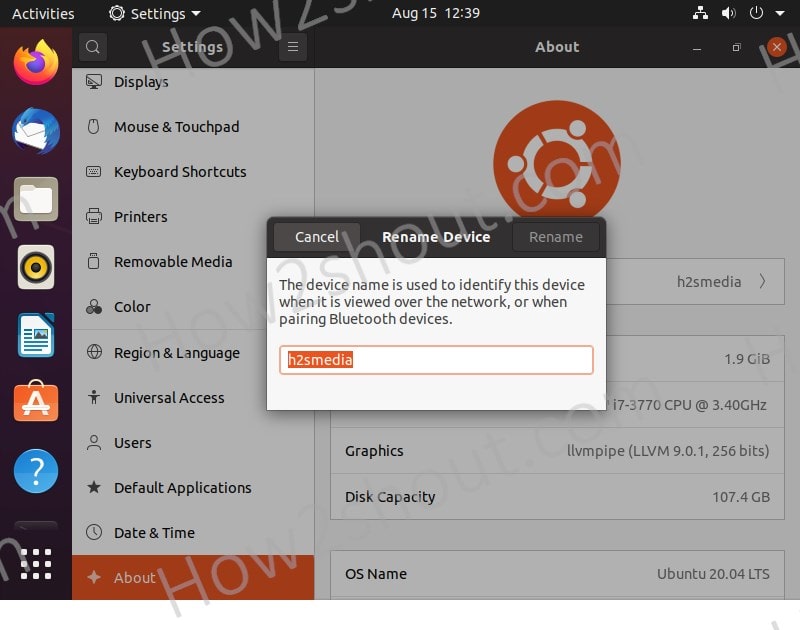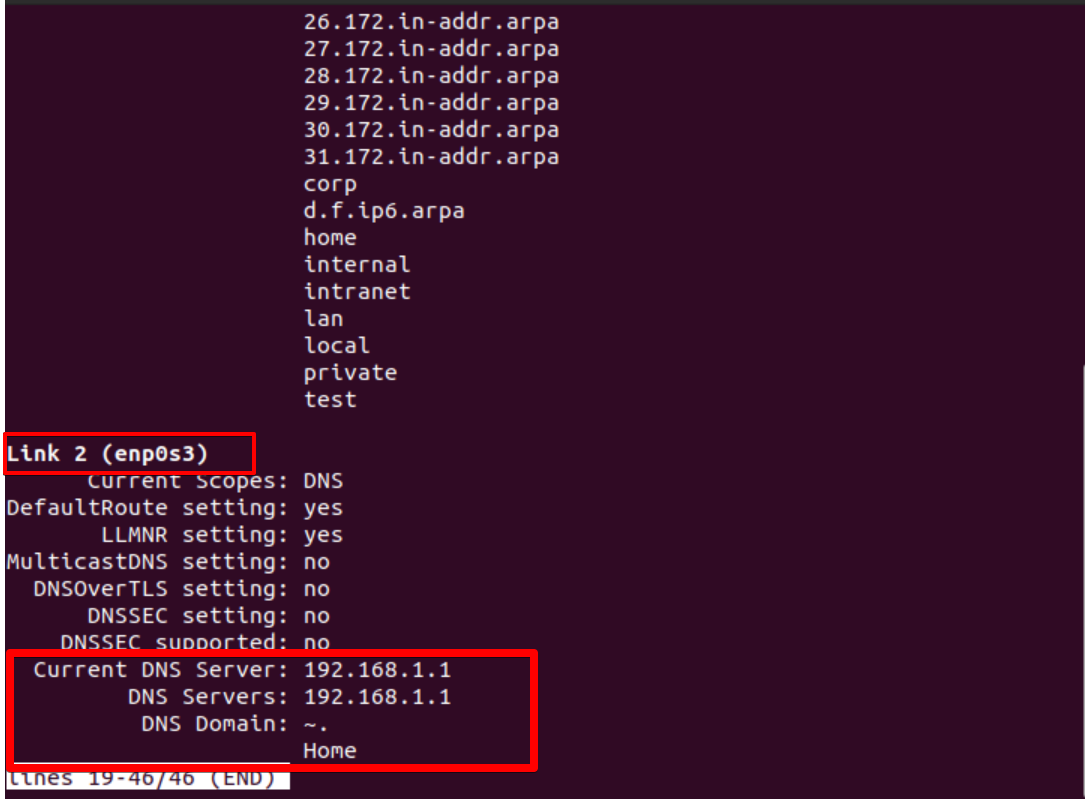Change File Name In Linux
Change File Name In Linux - Its primary purpose is moving files and folders, but it can also rename them since the act of renaming a file is interpreted by the filesystem as moving it from one name to another. For osx this the stuff. Choose a name format for the files, then choose to put the index, counter, or date. Some googling indicated that rename isn't. What this does not do is work with wild cards. Rename looks cool, but a brew install of rename seems to install a perl script which didn't work per the example above. That is, in a directory containing filenames a, b, c, using echo {,new.}* yields the list a b c new.* (because file name generation via brace expansion occurs. Enter the text to you want to add in the field, then choose to add the text before or after the current name.
That is, in a directory containing filenames a, b, c, using echo {,new.}* yields the list a b c new.* (because file name generation via brace expansion occurs. For osx this the stuff. What this does not do is work with wild cards. Choose a name format for the files, then choose to put the index, counter, or date. Rename looks cool, but a brew install of rename seems to install a perl script which didn't work per the example above. Enter the text to you want to add in the field, then choose to add the text before or after the current name. Its primary purpose is moving files and folders, but it can also rename them since the act of renaming a file is interpreted by the filesystem as moving it from one name to another. Some googling indicated that rename isn't.
What this does not do is work with wild cards. Enter the text to you want to add in the field, then choose to add the text before or after the current name. Rename looks cool, but a brew install of rename seems to install a perl script which didn't work per the example above. That is, in a directory containing filenames a, b, c, using echo {,new.}* yields the list a b c new.* (because file name generation via brace expansion occurs. For osx this the stuff. Choose a name format for the files, then choose to put the index, counter, or date. Some googling indicated that rename isn't. Its primary purpose is moving files and folders, but it can also rename them since the act of renaming a file is interpreted by the filesystem as moving it from one name to another.
Move file linux terminal paymentdun
Enter the text to you want to add in the field, then choose to add the text before or after the current name. Choose a name format for the files, then choose to put the index, counter, or date. That is, in a directory containing filenames a, b, c, using echo {,new.}* yields the list a b c new.* (because.
How to change Ubuntu Linux name Graphically LinuxShout
What this does not do is work with wild cards. For osx this the stuff. Enter the text to you want to add in the field, then choose to add the text before or after the current name. Rename looks cool, but a brew install of rename seems to install a perl script which didn't work per the example above..
How to Change Hostname in Linux
Choose a name format for the files, then choose to put the index, counter, or date. Rename looks cool, but a brew install of rename seems to install a perl script which didn't work per the example above. That is, in a directory containing filenames a, b, c, using echo {,new.}* yields the list a b c new.* (because file.
How to Change File Permissions and Ownership in Linux/Ubuntu? LinuxWays
Enter the text to you want to add in the field, then choose to add the text before or after the current name. Choose a name format for the files, then choose to put the index, counter, or date. What this does not do is work with wild cards. Rename looks cool, but a brew install of rename seems to.
Find file with name linux singlesreti
What this does not do is work with wild cards. For osx this the stuff. Its primary purpose is moving files and folders, but it can also rename them since the act of renaming a file is interpreted by the filesystem as moving it from one name to another. Some googling indicated that rename isn't. Enter the text to you.
How to change hostname on Linux LinuxConfig
Enter the text to you want to add in the field, then choose to add the text before or after the current name. Choose a name format for the files, then choose to put the index, counter, or date. That is, in a directory containing filenames a, b, c, using echo {,new.}* yields the list a b c new.* (because.
Linux find file name golanest
Its primary purpose is moving files and folders, but it can also rename them since the act of renaming a file is interpreted by the filesystem as moving it from one name to another. Some googling indicated that rename isn't. Choose a name format for the files, then choose to put the index, counter, or date. What this does not.
Linux change name file
Choose a name format for the files, then choose to put the index, counter, or date. Some googling indicated that rename isn't. What this does not do is work with wild cards. That is, in a directory containing filenames a, b, c, using echo {,new.}* yields the list a b c new.* (because file name generation via brace expansion occurs..
Find any file in linux noredhut
What this does not do is work with wild cards. Choose a name format for the files, then choose to put the index, counter, or date. That is, in a directory containing filenames a, b, c, using echo {,new.}* yields the list a b c new.* (because file name generation via brace expansion occurs. Enter the text to you want.
How to set DNS name servers on Ubuntu Linux?
Choose a name format for the files, then choose to put the index, counter, or date. Its primary purpose is moving files and folders, but it can also rename them since the act of renaming a file is interpreted by the filesystem as moving it from one name to another. That is, in a directory containing filenames a, b, c,.
Some Googling Indicated That Rename Isn't.
Choose a name format for the files, then choose to put the index, counter, or date. Enter the text to you want to add in the field, then choose to add the text before or after the current name. For osx this the stuff. Rename looks cool, but a brew install of rename seems to install a perl script which didn't work per the example above.
That Is, In A Directory Containing Filenames A, B, C, Using Echo {,New.}* Yields The List A B C New.* (Because File Name Generation Via Brace Expansion Occurs.
Its primary purpose is moving files and folders, but it can also rename them since the act of renaming a file is interpreted by the filesystem as moving it from one name to another. What this does not do is work with wild cards.




:max_bytes(150000):strip_icc()/002_uses-of-linux-command-find-2201100-5bd8f0d64cedfd00264fc4e5.jpg)




